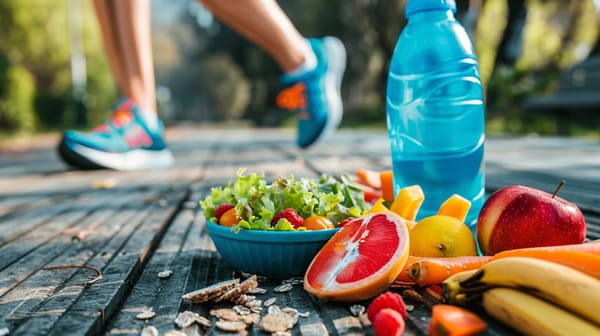Unlock Optimal Performance: Master Your Athletic Nutrition in Six Steps

Fueling your body correctly is essential, not just for everyday health, but especially when you’re training for an athletic event. The relationship between nutrition and performance is undeniable, and mastering this can be the difference between a personal best and a performance letdown.
Understand the Basics of Sports Nutrition
Before diving deep into what to eat, it's important to grasp why nutrition is crucial. Energy for your workouts comes from the foods you consume. Carbohydrates are the primary fuel source during high-intensity workouts, while fats fuel longer, less intense sessions. Proteins, though not a primary energy source, are vital for muscle repair and growth.
Step-by-Step Guide to Eating for Athletic Success
Step 1: Pre-Training Nutrition
Fueling your body before a workout is like putting gas in a car before a long trip. Focus on carbohydrates for energy and moderate protein for muscle support. Ideal pre-workout meals might include oatmeal with fruits or a turkey and cheese sandwich on whole-grain bread.
Step 2: Nutrition During Exercise
For prolonged activity, maintaining energy is key. It’s beneficial to consume easily digestible carbohydrates during events to keep energy levels consistent. Sports drinks, gels, and even small, high-carb snacks can be very effective.
Step 3: Post-Workout Recovery
After exercising, the goal is to replenish the energy stores and repair muscles. A combination of carbohydrates and protein immediately after training can enhance recovery. A protein shake with a banana or a yogurt with berries are quick, effective options.
Step 4: Hydration
Hydration impacts athletic performance substantially. Water supports every metabolic function and nutrient transfer in the body and maintaining hydration is crucial for peak performance. Always start your training hydrated and drink regularly during your workout.
Step 5: Balance Your Meals
Ensure your regular meals are balanced with a good mix of carbohydrates, proteins, and fats. This balance not only supports your training but also your overall health. Plates filled with colorful vegetables, lean proteins, and whole grains are your goal.
Step 6: Listen to Your Body
Each athlete’s body is different and may require different fueling strategies. Pay attention to how your body responds to different foods before, during, and after exercise to tailor your nutrition plan effectively.
Common Mistakes to Avoid in Sports Nutrition
Skipping Meals: Regularly missing meals can lead to inadequate fueling which directly impacts performance.
Overdependence on Supplements: While supplements can play a role in an athlete’s diet, relying too heavily on them can cause neglect of crucial whole foods.
Ignoring Hydration: Failing to hydrate adequately can lead to dehydration, which markedly decreases performance.
By integrating these practices into your training routine, you can enhance your athletic performance through targeted nutrition, leading to better results and overall health.




